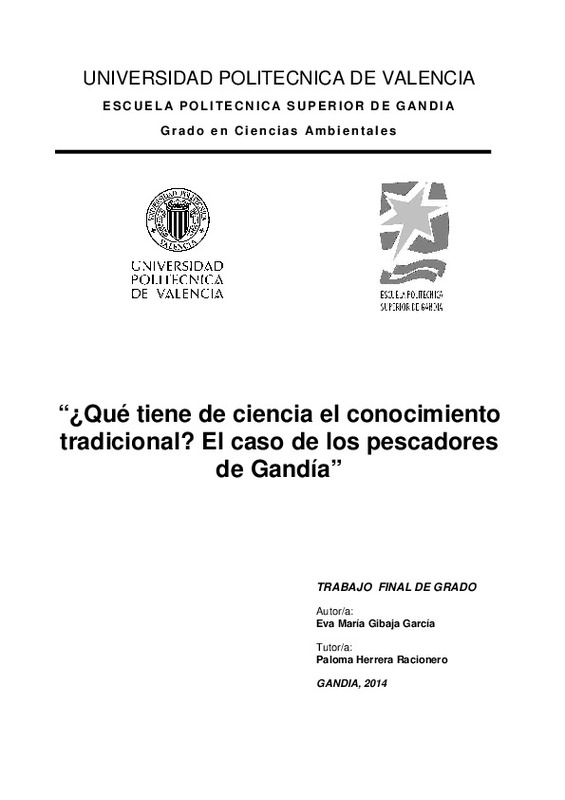JavaScript is disabled for your browser. Some features of this site may not work without it.
Buscar en RiuNet
Listar
Mi cuenta
Estadísticas
Ayuda RiuNet
Admin. UPV
¿Qué tiene de ciencia el conocimiento tradicional? El caso de los pescadores de Gandía
Mostrar el registro completo del ítem
Gibaja García, EM. (2014). ¿Qué tiene de ciencia el conocimiento tradicional? El caso de los pescadores de Gandía. Universitat Politècnica de València. http://hdl.handle.net/10251/39649
Por favor, use este identificador para citar o enlazar este ítem: http://hdl.handle.net/10251/39649
Ficheros en el ítem
Metadatos del ítem
| Título: | ¿Qué tiene de ciencia el conocimiento tradicional? El caso de los pescadores de Gandía | |||
| Autor: | Gibaja García, Eva María | |||
| Director(es): | ||||
| Entidad UPV: |
|
|||
| Fecha acto/lectura: |
|
|||
| Resumen: |
Gran parte de los recursos pesqueros en los mares de todo el mundo se encuentran
en una situación de sobreexplotación y las consecuencias sociales, económicas y
ambientales ya se han empezado a notar. La pesca tradicional ...[+]
Much of the fishing resources in the seas around the world are in a situation of over-
exploitation, and the social, economical and environmental consequences have already begun to be
noticed. Traditional fishing has ...[+]
|
|||
| Palabras clave: |
|
|||
| Derechos de uso: | Reconocimiento - No comercial - Sin obra derivada (by-nc-nd) | |||
| Editorial: |
|
|||
| Titulación: |
|
|||
| Tipo: |
|
recommendations
Este ítem aparece en la(s) siguiente(s) colección(ones)
-
EPSG - Trabajos académicos [5004]
Escuela Politécnica Superior de Gandia







